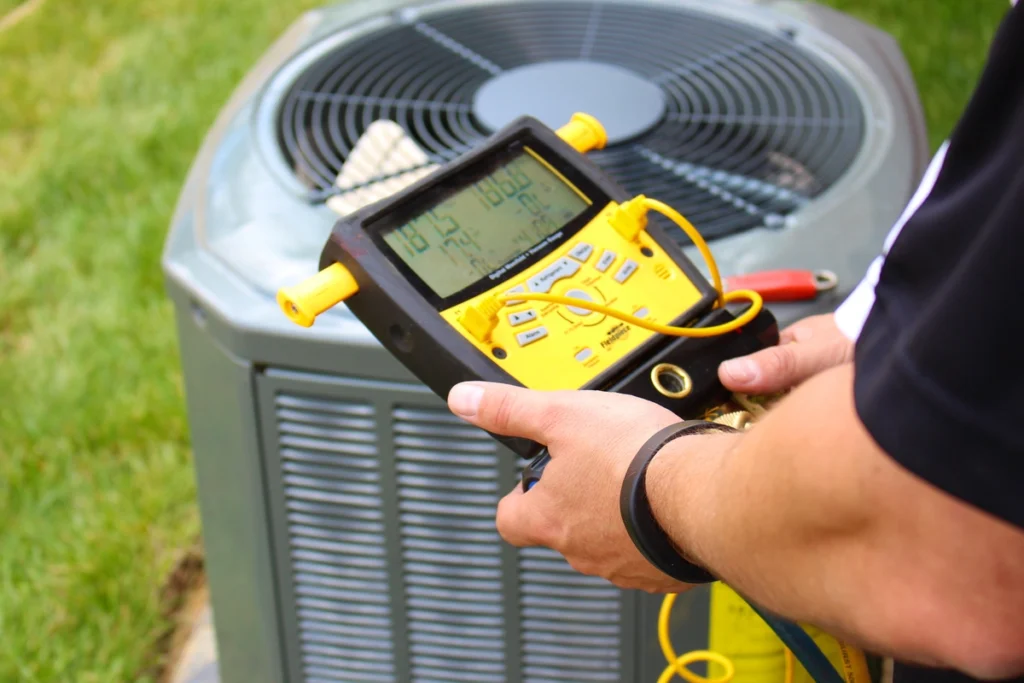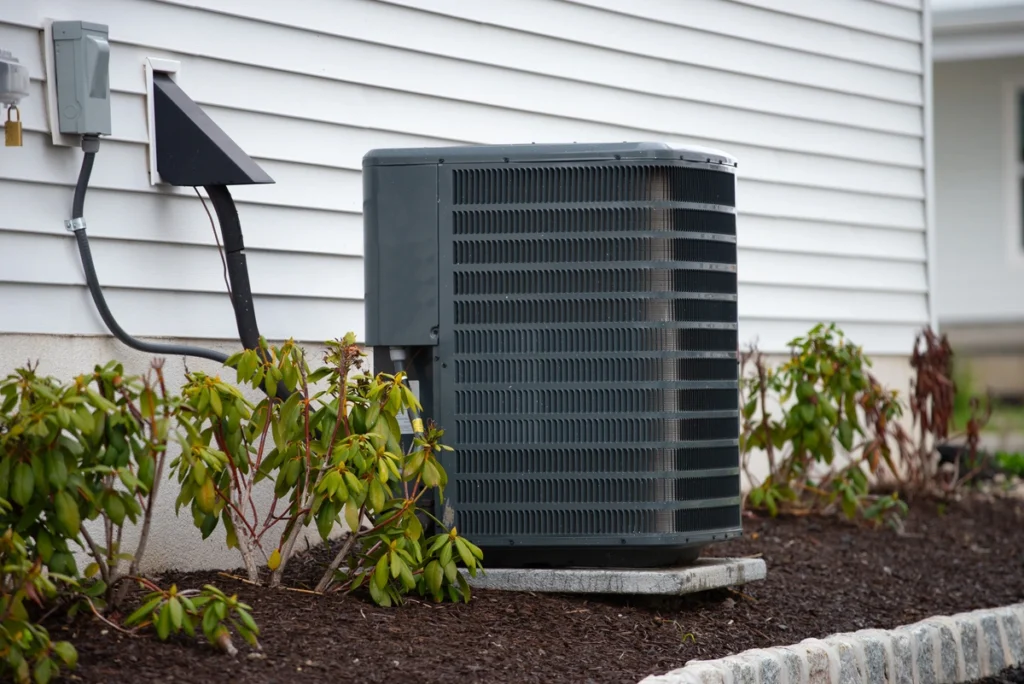Every homeowner knows that a well-functioning HVAC system is vital for maintaining a comfortable and safe home environment. However, like any other mechanical system, HVAC systems are prone to breakdowns, especially at the most inconvenient times. Knowing how to handle emergency HVAC repairs can save you from discomfort, prevent further damage to your system, and potentially reduce the cost of repairs. This guide will discuss everything you need to know about emergency HVAC situations:
- The types of emergency HVAC services
- What constitutes an emergency
- Examples of emergency scenarios
- Steps to address HVAC problems
- Common HVAC emergencies
- Selecting a reliable emergency repair service
🤔 Understanding Emergency HVAC Services
Emergency HVAC services are specialized, urgent interventions designed to restore heating, ventilation, and air conditioning systems when they fail unexpectedly and require immediate attention. Unlike routine maintenance or scheduled repairs, emergency services are typically available 24/7 and are intended to address significant malfunctions that affect your living conditions or could lead to immediate system damage.
What Is Considered an HVAC Emergency?
An HVAC emergency is any situation where the system’s failure poses immediate discomfort, health risks, or potential damage to the property. Examples include:
- Complete loss of heating or cooling during extreme weather conditions.
- Suspicious noises or smells coming from the HVAC unit, which could indicate a fire hazard or mechanical failure.
- Significant water leaks that could damage the building structure or electrical systems.
- Electrical issues, such as the breaker repeatedly tripping, which could signal an imminent failure of the system.
🛠️ Examples of Emergency HVAC Services
Understanding what could make a scenario and HVAC emergency will help you better prepare for and quickly address any sudden HVAC issues. Common emergency services provided by HVAC professionals include:
- Repairing or replacing failed components like motors, fans, or electrical connections.
- Clearing blockages in ducts or vents that restrict airflow.
- Addressing refrigerant leaks, which are crucial for the proper functioning of air conditioners.
- Restoring power to the HVAC system following electrical failures.
💡 5 Steps to Remedy HVAC Problems

Navigating an HVAC emergency efficiently requires a clear and structured approach. When you face an HVAC emergency, follow these steps to manage the situation effectively:
1. Assess The Situation:
Quickly determine the severity of the problem. If there’s any risk of fire or significant water damage, evacuate the area and call emergency services.
2. Shut Down The System:
If it’s safe to do so, turn off your HVAC system to prevent further damage or hazards.
3. Contact A Professional:
Call an emergency HVAC repair service. Provide them with as much information as possible about the issue.
4. Preventive Measures:
While waiting for the repair service, take any necessary actions to mitigate the impact, such as containing leaks or using fans to circulate air.
5. System Evaluation:
Once the technician arrives, they will evaluate your system, diagnose the issue, and propose a repair or replacement solution.
🔧 Most Common HVAC Emergencies
HVAC emergencies can range from inconvenient to downright dangerous. Here, we’ll explore the most common HVAC emergencies that homeowners might face, helping you to recognize and respond to these urgent issues swiftly.
- Furnace Failure in Winter: This can lead to pipes freezing and bursting, causing extensive water damage.
- AC Outage During a Heatwave: Prolonged exposure to heat can be hazardous, particularly for the elderly or those with health issues.
- Continuous Cycling: This strain on the system can lead to a complete shutdown or significant damage.
- Unusual Noises or Smells: These can be indicators of imminent breakdowns or safety issues.
🧑🔧 Choosing an Emergency HVAC Repair Service
When selecting an emergency HVAC repair company, consider the following criteria:
- Availability: Ensure they offer 24/7 emergency services.
- Certifications and Licensing: Verify that the technicians are certified and the company is licensed to operate in your area.
- Experience and Reputation: Look for reviews or testimonials about their service quality and responsiveness.
- Insurance and Guarantees: Choose a company that is insured and offers guarantees on their work.
❓ 7 Frequently Asked Questions About Emergency HVAC Repairs and Services

1. What Qualifies As An Emergency HVAC Repair?
An emergency HVAC repair is needed when your system fails and creates an immediate safety risk, severe discomfort, or potential for significant property damage. This includes scenarios like a complete heating system failure in freezing temperatures or a significant air conditioner breakdown during a heatwave.
2. How Quickly Can I Expect An HVAC Technician To Arrive For An Emergency Service?
Response times can vary based on the contractor and your location, but most emergency HVAC services aim to respond within a few hours. Companies often prioritize calls based on the severity of the issue and the potential risk to health and property.
3. Can I Perform Any HVAC Repairs Myself In An Emergency?
While some minor troubleshooting, like checking thermostats or replacing filters, can be done by homeowners, most HVAC emergencies should be handled by professionals. Attempting more complex repairs yourself can be dangerous and might lead to further damage or voiding warranties.
4. What Should I Do While Waiting For The Emergency HVAC Technician?
First, ensure the system is turned off to avoid further damage or hazards. If it’s safe, check for simple issues like tripped breakers or dirty filters. Avoid using the HVAC system until a professional has assessed the situation.
5. Will My Homeowners Insurance Cover Emergency HVAC Repairs?
Coverage varies depending on your insurance policy. Some policies may cover damages caused by HVAC malfunctions, but not the repair of the HVAC system itself. It’s best to contact your insurance provider for details about what is covered under your specific policy.
6. How Can I Prevent HVAC Emergencies?
Regular maintenance is key to preventing HVAC emergencies. This includes annual inspections, cleaning ducts and filters, and promptly addressing any minor issues before they escalate into major problems.
7. Are There Any Signs That Might Indicate An Impending HVAC Emergency?
Yes, be alert to signs like unusual noises, smells, frequent cycling, or performance issues such as uneven heating or cooling. These can be precursors to more serious problems.
Calling the Experts
In many cases, the complexity and urgency of HVAC issues necessitate professional intervention. Expert HVAC technicians have the tools, training, and experience to diagnose issues quickly and restore your system efficiently. Our team at Palmetto Air Conditioning are ready to handle your emergency HVAC service. Don’t wait until your home is uncomfortable, call us now.
Emergency HVAC repairs can be daunting, but with the right knowledge and a reliable expert, you can navigate these stressful situations effectively. By understanding what constitutes an emergency, how to respond, and what to look for in a repair service, you can ensure that your HVAC system remains in good working condition, providing a safe and comfortable environment for your home.
